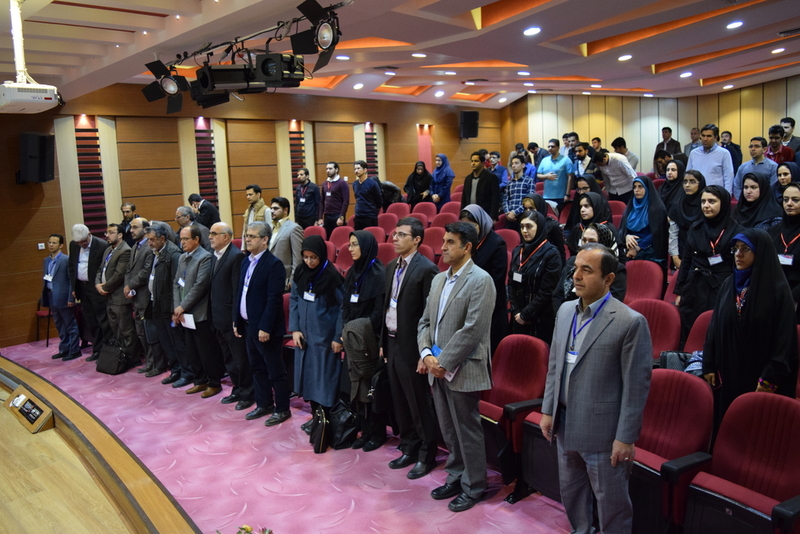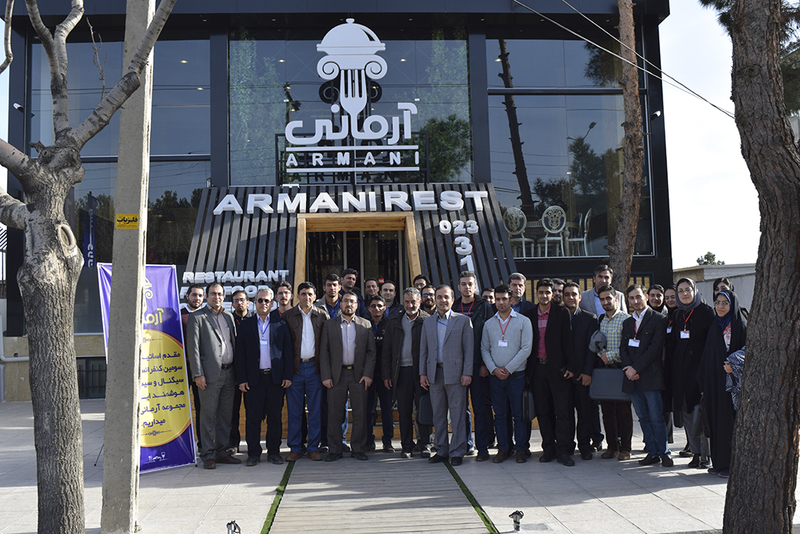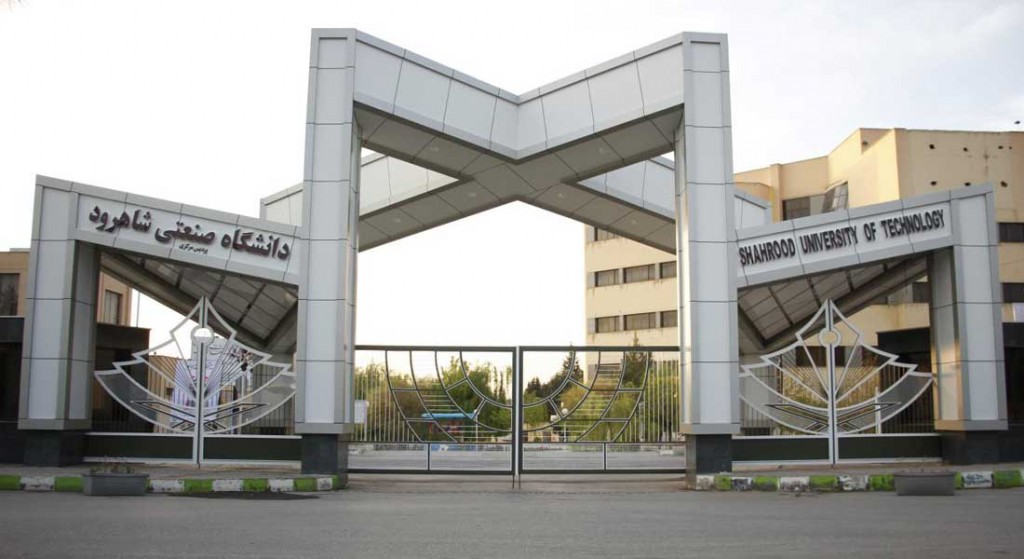ICSPIS Conference
The scientific community has witnessed a substantial growth in digital signal processing and intelligent systems in recent decades, with ever increasing applications in technology. The Annual Conference on Signal Processing and Intelligent Systems has been organized by the Center of Excellence in Digital Processing Systems at Amirkabir University of Technology as a platform for collaboration and exchange of knowledge among scholars and researchers on the topics of Signal Processing and Intelligent Systems.
The third ICSPIS will be held at the Shahrood University of Technology in Shahrood, Iran, in December 20 and 21, 2017. English papers will be submitted to IEEE Xplore.
Selected papers in extended version are considered for publication in Journal of Artificial Intelligence and Data Mining.
Call for Paper
The third ICSPIS will be held at the Shahrood University of Technology in Shahrood, Iran, in December 20 and 21, 2017. English papers will be submitted to IEEE Xplore.
Selected papers in extended version are considered for publication in Journal of Artificial Intelligence and Data Mining.
Call for Paper
We are pleased to announce that program for the ICSPIS 2017 Conference has been announced.
Please upload
the powerpoint file of your presentation
in
paper submission portal
by Monday, December 18, 2017.
Upload Final Version of Your Paper
Registration for Iranian Participants
The payment for foreign participants can be made at the registration desk.
The payment for foreign participants can be made at the registration desk.
First Keynote Speaker: Prof. Ching Y. Suen

Director - CENPARMI, Centre for Pattern Recognition & AI, Concordia Univ.
http://www.cenparmi.concordia.ca/CENPARMI/Suen//index.html
Section Editor and Emeritus Editor-in-Chief, Pattern Recognition, Elsevier
https://ees.elsevier.com/pr/
Editor - Book series on Language Processing, Pattern Recognition, and
Intelligent systems, World Scientific Publishing Co.
http://www.worldscientific.com/worldscibooks/10.1142/9968
General Chair - Int. Conf. on Pattern Recognition and AI:
http://www.icprai2018.com
http://www.cenparmi.concordia.ca/CENPARMI/Suen//index.html
Section Editor and Emeritus Editor-in-Chief, Pattern Recognition, Elsevier
https://ees.elsevier.com/pr/
Editor - Book series on Language Processing, Pattern Recognition, and
Intelligent systems, World Scientific Publishing Co.
http://www.worldscientific.com/worldscibooks/10.1142/9968
General Chair - Int. Conf. on Pattern Recognition and AI:
http://www.icprai2018.com
Second Keynote Speaker: Dr. Naushad Mamode Khan

Talk Title: Bivariate extension of Integer-valued Autoregressive Processes Under NonStationarity and the challenges
In various studies, time series of count responses are recorded for different correlated variables which
may be marginally dispersed relative to their means and different series may exhibit different levels of
over-dispersion. In addition, such series may be commonly influenced by one or more dynamic
explanatory variables. Analysis of such type of bivariate time series data is quite challenging and the
challenge mounts up further if these time series are non-stationary.
The existing bivariate time series models are not suitable to analyze such type of series since these models have been developed under time-independent covariates and can only model count responses with same level of dispersion. Thus, a major limitation of these models is that they cannot cater for series that exhibit over- dispersion mutually at different levels and fail to model non-stationary moment conditions, which in fact limit their applications in many practical real-life situations. To overcome these limitations, some novel bivariate models that allow for different levels of dispersion as well as non-stationarity are required. Specifically, first-order bivariate integer-valued autoregressive (BINAR(1)) models under Negative Binomial (NB) innovations are constructed, tested and applied to model the data arising in real-life situations. Models are constructed in two ways: Firstly assuming that the inter-relation between the series is induced by the innovation series only which ultimately yields a constrained BINAR(1) model under each distributional assumption and secondly, in an unconstrained setup, where the cross-correlation is influenced by relating the current series observation with previous-lagged observation of the other series and vice-versa.
Non-stationary nature of the series is taken in account under each model. Another important contribution is in developing a novel estimation procedure for estimating the parameters of the proposed BINAR(1) models. The Conditional Maximum Likelihood Estimation (CMLE), Feasible Generalized Least Squares (FGLS) and Method of Moments (MoM) are some of the popular techniques used to estimate the model parameters in this domain where CMLE, as expected, yields the most efficient estimates. Nevertheless, the CMLE is computationally intensive to implement and requires numerical approximations. Moreover, in the complex unconstrained BINAR(1) non-stationary processes, it is difficult to identify the marginal distributions of the counting series which limits the application of likelihood-based methods. Hence, a new estimation approach based on the Generalized Quasi-Likelihood (GQL) is proposed. This approach requires only the correct specification of the mean score and the robust auto-covariance structure.
The existing bivariate time series models are not suitable to analyze such type of series since these models have been developed under time-independent covariates and can only model count responses with same level of dispersion. Thus, a major limitation of these models is that they cannot cater for series that exhibit over- dispersion mutually at different levels and fail to model non-stationary moment conditions, which in fact limit their applications in many practical real-life situations. To overcome these limitations, some novel bivariate models that allow for different levels of dispersion as well as non-stationarity are required. Specifically, first-order bivariate integer-valued autoregressive (BINAR(1)) models under Negative Binomial (NB) innovations are constructed, tested and applied to model the data arising in real-life situations. Models are constructed in two ways: Firstly assuming that the inter-relation between the series is induced by the innovation series only which ultimately yields a constrained BINAR(1) model under each distributional assumption and secondly, in an unconstrained setup, where the cross-correlation is influenced by relating the current series observation with previous-lagged observation of the other series and vice-versa.
Non-stationary nature of the series is taken in account under each model. Another important contribution is in developing a novel estimation procedure for estimating the parameters of the proposed BINAR(1) models. The Conditional Maximum Likelihood Estimation (CMLE), Feasible Generalized Least Squares (FGLS) and Method of Moments (MoM) are some of the popular techniques used to estimate the model parameters in this domain where CMLE, as expected, yields the most efficient estimates. Nevertheless, the CMLE is computationally intensive to implement and requires numerical approximations. Moreover, in the complex unconstrained BINAR(1) non-stationary processes, it is difficult to identify the marginal distributions of the counting series which limits the application of likelihood-based methods. Hence, a new estimation approach based on the Generalized Quasi-Likelihood (GQL) is proposed. This approach requires only the correct specification of the mean score and the robust auto-covariance structure.
Important Dates
Submission Deadline: September 20, 2017
Extended to October 22, 2017
Notification of Acceptance: Final decision was sent.
Registration and submission for final version: 25 - 30 Nov.
Conference Date: December 20 and 21, 2017
Notification of Acceptance: Final decision was sent.
Registration and submission for final version: 25 - 30 Nov.
Conference Date: December 20 and 21, 2017
Contact Us
Department of Computer Engineering and IT, Shahrood University of Technology, Shahrood, Iran.
Email: icspis@shahroodut.ac.ir
Email: icspis@shahroodut.ac.ir
Latest News















